Thinking about buying a home or investment property in the UK? You’re not alone. Many people from around the world see the UK as a stable and attractive place to own real estate. You can legally buy property in the UK as a foreigner, with no restrictions on ownership, though you’ll need to understand the process, taxes, and financing rules that apply to non-residents.
We wrote this guide to provide you with a step-by-step approach to buying property, navigating the costs, and understanding legal requirements. We are a couple who have lived in London for over 15 years and are originally from Canada and Belgium.
Since 2007, we rented flats and got to know the property market in different areas of London. Around 2010, we looked into buying our first flat but we decided against it, feeling terrified parting with such a large amount of money. Unfortunately, that was a mistake. The value of the properties we looked at then has gone up dramatically by now. In 2014, we finally bought our first apartment followed by a second in 2022.
This article is based on our experiences and our now expertise helping foreigners purchase property throughout the UK.
Short on time? Here’s the cheat sheet:
Anyone can buy property, regardless of their nationality BUT owning property in the UK does not give you residency here.
If you don't have experience with the market in the UK, it's best you get assistance from a homeowner or hire an expert.
The process to purchase property can be lengthy and involve a lot of steps but it can be a solid investment or provide you and your family a home outside of the rental market if you already have a visa to stay.
Understanding the UK Property Market for International Buyers
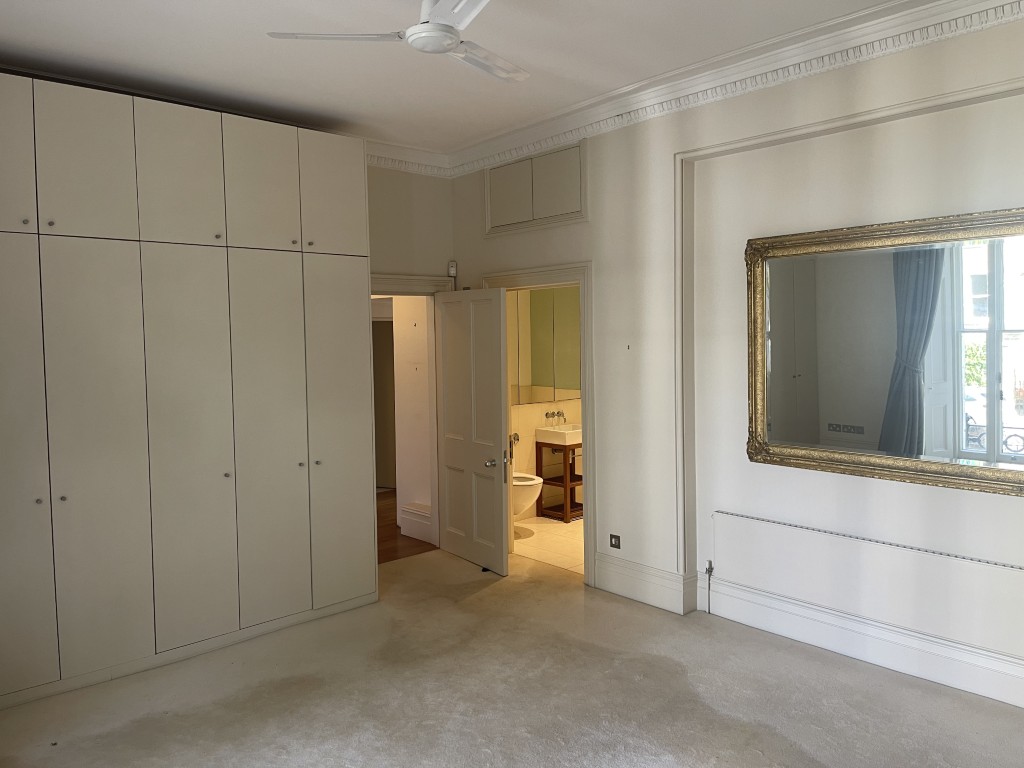
As a foreign national, you have clear legal and financial pathways to own property in the UK, and you can also easily rent out any type of property. Let’s have a look at some of the most common questions around the UK property market.
Has Brexit Reshaped Property Buying Rules?
After Brexit, the UK changed trade and immigration policies, but property ownership rules stayed almost the same. You can still buy property whether you’re from the EU or outside it. The main difference is that EU citizens no longer have automatic residency rights.
Buying property doesn’t grant you the right to live in the UK, but it remains a simple legal process. Foreign buyers follow the same steps as locals, including conveyancing, paying stamp duty, and registering ownership with the Land Registry.
Brexit also led to a weaker pound at times, which made UK property more affordable for overseas investors.
How’s the Buy-to-Let Market?
The buy-to-let market in the UK remains a strong choice if you’re looking for rental income. Cities like London, Manchester, Birmingham, and Leeds attract steady tenant demand from students and professionals.
Websites such as Rightmove and Zoopla help you estimate rental yields and compare neighborhoods. Long-term value often comes from areas with strong infrastructure and job growth rather than short-term speculation.
OUR TOP TIP: Always consult with several different real estate agents based in the area you are looking to buy. Speak to them and try to speak to some of the local residents, if you don’t know the area that well yourself.
Can Foreigners Buy Property in the UK?
Yes, you can. The UK is one of the most open property markets in the world.
There are no legal restrictions on foreigners owning residential or commercial property. You don’t even need a visa to buy. You can purchase through a personal name or a company.
Ownership rights are protected under British law, ensuring stability for international investors.
Can Foreigners Get British Residency by Buying Property in the UK?
Owning property in the UK does not grant residency. You can visit for short stays under a standard visitor visa, but living there full-time requires a separate immigration route.
You might qualify for a Skilled Worker Visa, Investor Visa, or Innovator Visa, depending on your background and investment amount. The property itself doesn’t count toward residency eligibility.
Buying a home can support your visa application by showing financial stability, but it’s not a direct path to settlement.
Can Foreigners Get British Citizenship by Buying Property in the UK?
You can’t get British citizenship simply by owning property. Citizenship follows a long process that includes residency, visas, and time spent living in the country.
To apply, you generally need to live in the UK for at least five years and hold Indefinite Leave to Remain (ILR) before applying for naturalization. Property ownership may help demonstrate ties to the UK but doesn’t replace immigration requirements.
The UK government does not offer a “citizenship by investment” program like some other countries. You’ll need to follow standard immigration and residency rules before becoming eligible.
OUR TOP TIP: As people who have gone through the process of residency then citizenship, we can strongly advise to keep a record of all the travel you are doing outside the UK and regularly keep documentation proving that you have lived in the UK (council tax bill, utility bill, bank statements).
Can Foreigners Buy Property in the UK from Overseas?
You can buy UK property without being in the country. Many international investors complete the process remotely through solicitors and estate agents.
Most transactions can be handled electronically, including signing contracts and transferring funds. Video tours and online listings make it easier to view properties from abroad.
Keep in mind that banks may ask for extra documents, such as proof of income and identity verification. Working with a UK-based solicitor ensures compliance with anti-money-laundering rules and helps you avoid delays during the purchase.
Tips for Choosing the Right Property
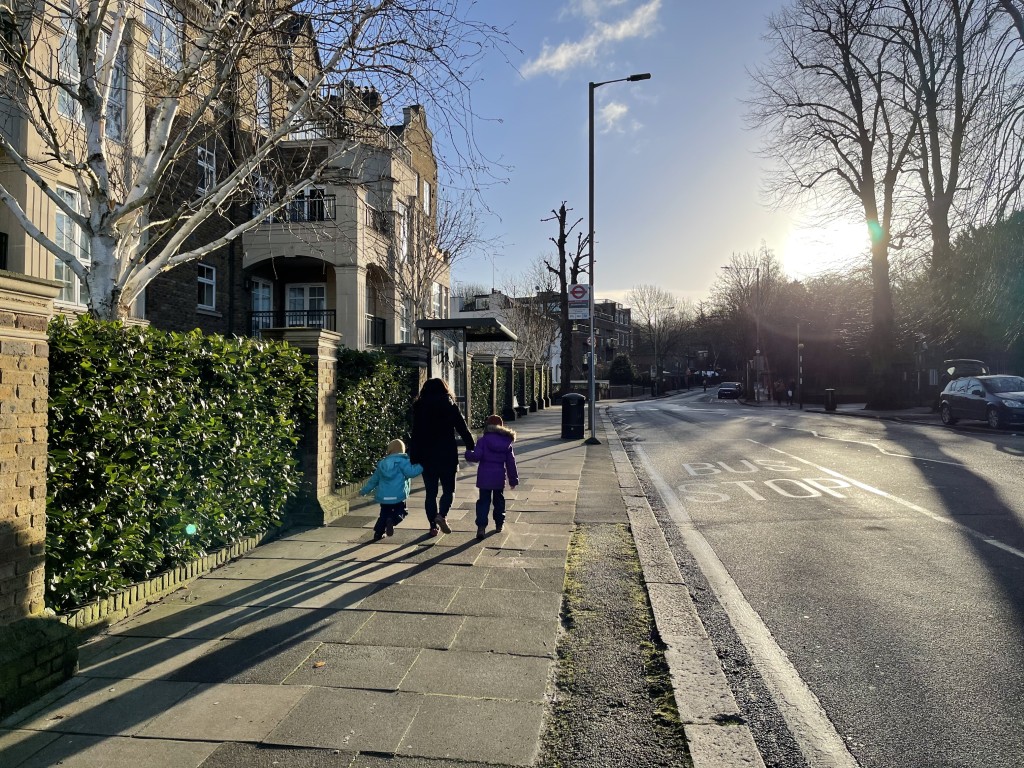
Certain aspects were completely new to me when buying property in the UK, different from anywhere else in the world.
Understanding Leasehold vs Freehold
In the UK, most houses are freehold, while many flats in London properties are leasehold. With a freehold, you own the building and the land it sits on. You handle maintenance, but you also have full control over changes and ownership.
A leasehold means you own the property for a set number of years, but not the land. You’ll pay ground rent and possibly service charges to the freeholder. When the lease runs low - often below 80 years - the property can lose value fast.
Before buying, always check the remaining lease term and any restrictions in the contract.
If you want long-term stability, a freehold usually offers more freedom. But if you prefer a flat in a central location, a leasehold might be your only option.
Evaluating Property Condition and Quality
This is an area that is often overlooked or not done properly by first-time home buyers. A lot of buildings in central areas are old - one of our properties in London is part of a house that is over 100 years old. These types of properties require a thorough inspection before signing any contract.
OUR TOP TIP: Work with a surveyor who has been recommended by locals in the same area of the property you are looking to buy. Speak to a few surveyors first so you can choose the one you feel the most comfortable with. You need someone who is on your side and who you can fully trust.
The inspection includes inspecting the structure, plumbing, wiring, roof condition, and water pipes. Even newer London properties can have hidden issues. Hiring a chartered surveyor is very important.
Ask for a HomeBuyer Report or Building Survey depending on the property’s age and type. Look for signs of damp, mold, or subsidence (i.e. sinking of the ground).
Make a checklist to closely review:
- Roof & Walls: Check for cracks and leaks as repairs can be expensive
- Plumbing: Check for water pressure and leaks as you made near to replace pipes
- Electrical: Check for outdated wiring to ensure the home is safe.
Legal Considerations for Foreign Property Buyers
Buying property in the UK as a foreigner involves understanding how your visa status affects ownership, what types of property you can buy, and what paperwork you’ll need. You can also choose to buy in your name or through a UK company, depending on your goals and tax situation.
Visa & Residency Requirements
You don’t need to live in the UK to buy property. The UK has no residency requirement for property ownership, meaning you can purchase a flat or house even if you live abroad. However, owning property does not give you the right to live in the UK.
If you plan to stay long-term, you’ll need the right visa. Common options include a Skilled Worker visa, Investor visa, or Innovator visa. Each has its own financial and business requirements.
Mortgage lenders may ask for proof of income and visa status before approving financing. Some banks only lend to residents, while others work with overseas buyers.
Keep in mind that if you rent out your property, you’ll need to register for UK tax and may owe income tax on rental earnings.
Property Types Accessible to Foreign Buyers
Foreign buyers can purchase most types of property, including residential homes, commercial buildings, and buy-to-let investments. There are no restrictions on freehold or leasehold ownership for non-UK residents.
You can buy new-build apartments, countryside homes, or city flats. The UK’s legal system allows full ownership rights regardless of nationality.
Some properties, like those in shared ownership schemes or housing association developments, may have residency restrictions. Always check the property’s title and terms before committing.
If you plan to invest, look into local rental regulations and council taxes. Landlords must meet safety and licensing rules, especially for multi-tenant properties.
Setting Up a UK Company for Property Purchase
Some foreign investors choose to buy property through a UK-registered company. This can make tax management easier and help with inheritance planning.
Setting up a company involves registering with Companies House, appointing directors, and creating a UK business bank account. You’ll also need to file annual accounts and pay corporation tax.
Buying through a company may reduce stamp duty in certain cases, though you’ll face other taxes such as Capital Gains Tax (CGT) when selling.
If you’re purchasing multiple properties or planning long-term investments, forming a company can separate personal and business assets, offering some legal protection.
Documentation You'll Need
You’ll need several documents to complete a property purchase in the UK. These usually include:
- Passport of ID
- Proof of address (can be overseas)
- Proof of funds
- Mortgage agreement (if financing is involved)
- Solicitor details (required for legal checks and registration)
Your solicitor will handle most of the legal paperwork and register your ownership with HM Land Registry. After completion, you’ll receive the title deed confirming you as the legal owner.
Always keep copies of all documents for tax and legal purposes. If you’re buying remotely, you may need certified translations or notarized copies of some papers.
Financial Aspects of Buying Property in the UK as a Foreigner

When you buy property in the UK, you deal with high property prices, several taxes and fees, and different financing rules for non-residents.
Property Prices in the UK
Property prices vary a lot depending on location. London has some of the highest prices, often over £500,000 for an average home, while cities like Manchester, Birmingham, and Glasgow offer more affordable options.
It is common in the UK to work with several real estate agents to get all the insights about the location where you are planning to buy.
Here’s a quick look at average prices by area:
- London: £500,000+ (high demand, limited supply)
- Southeast England: £400,000 (strong commuter market)
- Northwest England: £250,000 (popular with investors)
- Scotland: £220,000 (lower entry costs)
You’ll also need to budget for extra costs like surveys, legal fees, and exchange rate differences if paying in another currency.
Taxes and Fees for Buying Property in the UK
When you buy property, the main cost beyond the price is the Stamp Duty Land Tax (SDLT). Foreign buyers pay an extra 2% surcharge on top of standard rates. The stamp duty is calculated as a percentage of the value of the property. The percentage ranges from 5% to 12% and depends on the value of the property, the purchase date, and whether you are a first-time buyer or not.
Other common costs include:
- Legal fees: £1,000–£2,000
- Land Registry fee: £200–£1,000 depending on property value
- Survey costs: £400–£1,500
- Mortgage arrangement fees: up to 1% of the loan
If you rent out your property, you’ll also pay income tax on rental profits and possibly capital gains tax when selling. Non-residents must register with HMRC for these obligations.
Financing Options for Foreign Buyers
If you’re not a UK resident, getting a mortgage can be harder but still possible. Many banks offer international or expat mortgages, though they often require a larger deposit of 25–40%.
You’ll need to show proof of income, identity documents, and sometimes overseas credit history. Lenders may also ask for a UK bank account for payments.
Some foreign buyers choose to buy in cash to avoid complex lending rules. Others use specialized brokers who work with international clients.
Step-by-Step Process to Buying Property in the UK
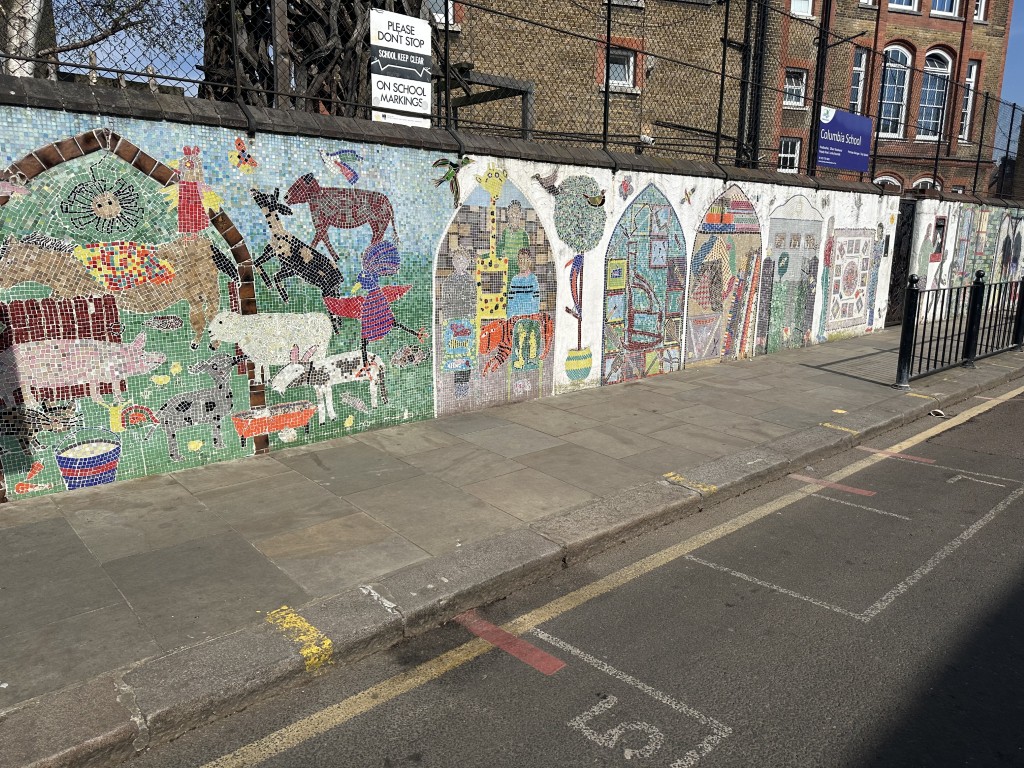
Buying a home in the UK involves several legal and financial steps that require careful planning. Let’s go through the process step-by-step.
Step 1. Establish Your Finances
Start by figuring out how much you can afford. Review your savings, income, and any existing debts. If you’re buying from abroad, check currency exchange rates and international transfer fees since they can affect your total cost. You’ll also want to explore mortgage options.
Create a budget that includes stamp duty, solicitor fees, survey costs, and possible renovation expenses. Use online calculators on property sites or mortgage comparison tools to estimate your total costs before making any commitments.
Step 2. Search for the Right Property
Use popular property websites like Rightmove and Zoopla to browse listings. These platforms let you filter by location, price, and property type.
If you’re abroad, consider hiring a local estate agent who understands the market and can preview homes for you. Some agents offer virtual tours or video walkthroughs.
Pay attention to transport links, local schools, and neighborhood safety. Research average prices in the area to make sure you’re paying a fair amount. Keep track of potential listings in a spreadsheet to compare features and costs easily.
Step 3. Start Viewing Properties
When you find promising options, schedule viewings. If you can’t visit in person, ask for live video tours. During each viewing, inspect the property carefully. Look for signs of damp, cracks in walls, or outdated wiring.
OUR TOP TIP: If this is your first time buying, then we would highly recommend doing these viewings with an experienced home buyer. That person will be able to point out issues you may not think of.
Bring a checklist and take photos or notes. Ask the seller or agent about recent repairs, utility costs, and council tax bands.
If you plan to rent the property later, check local rental demand and rental yield.
Step 4. Make an Offer
Once you’ve chosen a property, make a formal offer through the estate agent. Your offer should reflect market value and your budget. Agents usually pass it to the seller for review. You can negotiate if the seller rejects or counters your offer.
When your offer is accepted, ask the agent to mark the property as “under offer.” This helps prevent other buyers from stepping in. Keep written confirmation of the agreed price and any special conditions.
Step 5. Hire a Solicitor for Legal Assistance
You’ll need a solicitor or licensed conveyancer to handle the legal process. They’ll check property ownership, draft the contract, and handle communication with the seller’s solicitor.
Choose someone experienced in working with foreign buyers. They’ll guide you through UK property law and ensure all documents meet legal standards.
Your solicitor will also perform searches, including local authority and environmental checks, to uncover any restrictions or issues with the property. This step protects you from future legal or financial surprises.
Step 6. Complete a Property Assessment
Your solicitor will review property details and legal documents. They’ll confirm the seller has the right to sell and that there are no disputes or unpaid charges.
They’ll also check for planning permissions, building regulations compliance, and access rights. If any problems arise, your solicitor will contact the seller’s representative to resolve them.
This process can take several weeks. Stay in touch with your solicitor to track progress and respond quickly to any requests for additional information.
Step 7. Finalize Your Mortgage (If Applicable)
Once your offer is accepted, finalize your mortgage application. Provide your lender with proof of income, identification, and property details.
The lender will arrange for a valuation to confirm the property’s market value. If everything checks out, you’ll receive a formal mortgage offer.
Review the terms carefully before signing. Pay attention to the interest rate, repayment period, and fees. If you’re unsure about any terms, ask your solicitor or financial adviser to explain them in plain language.
Step 8. Commission a Home Survey
Before you sign anything, commission a home survey. A qualified surveyor will inspect the property and report on its condition.
There are different types of surveys, from basic condition reports to full structural surveys. Choose one that matches the property’s age and condition.
If the survey reveals major issues, you can renegotiate the price or ask the seller to make repairs. Having a clear picture of the property’s state helps you avoid unexpected costs later.
Step 9. Arrange Home Insurance
You’ll need buildings insurance before completion. Most lenders require it as a condition of the mortgage. It protects your home against damage from fire, flooding, or other risks.
Compare policies online to find the best coverage and price. Some insurers also offer contents insurance for your belongings.
Start the policy on the day you exchange contracts so you’re covered immediately. Keep proof of insurance handy for your solicitor and lender.
Step 10. Sign the Contract
Once all checks are complete, your solicitor will prepare the final contract. It outlines the terms of the sale, including the price, completion date, and any agreed conditions.
Review it carefully before signing. Ask your solicitor to explain any legal terms you don’t understand.
When both parties sign, the agreement becomes legally binding. At this stage, you’ll also need to pay your deposit, which is usually 10% of the property’s price.
Step 11. Pay the Deposit
Your deposit confirms your commitment to buy. It’s transferred to your solicitor’s client account and then passed to the seller’s solicitor.
If you back out after signing the contract, you could lose your deposit. Make sure you’re fully satisfied with all terms before proceeding.
Keep records of all payments and receipts. Your solicitor will apply the deposit toward the final purchase price during completion.
Step 12. Complete Final Arrangements
Before completion day, your solicitor will confirm that funds are ready and all conditions are met. They’ll coordinate with the seller’s solicitor to transfer the balance of the purchase price.
You’ll also receive a final statement showing all costs, including legal fees and taxes. Review it to ensure everything adds up correctly.
Once the seller’s solicitor confirms receipt of payment, you officially own the property. Your solicitor will then handle registration and related paperwork.
Step 13. Finalize Your Purchase
On completion day, ownership transfers to you. Your solicitor will send payment to the seller and notify your lender.
You’ll receive the keys from the estate agent, and the property is now legally yours. Keep all documents, including the completion statement and mortgage agreement, for your records.
If you bought a leasehold property, your solicitor will inform the freeholder about the change in ownership and update contact details for future correspondence.
Step 14. Register Your Ownership
Your solicitor will register your ownership with HM Land Registry. This process confirms you as the legal owner and records your title details.
Registration usually takes a few weeks. Once complete, you’ll receive an electronic title deed showing your name and property information.
Check that all details are correct. Keep a digital copy for your records, as it’s proof of ownership and needed for any future sale or refinancing.
Step 15: Move In!
After registration, you can move into your new home. Arrange utilities like gas, electricity, water, and internet ahead of time.
Change your address with banks, employers, and government agencies. If you bought the property as an investment, coordinate with letting agents to find tenants.
Take time to inspect everything once more and note any issues that need fixing. Enjoy settling into your new place and becoming part of your local community.
Top Locations to Buy Property in the UK

You’ll find strong rental demand, steady price growth, and a mix of modern and historic housing across the UK.
Major cities like London, Manchester, and Birmingham attract investors for their job markets and infrastructure, while northern areas such as Leeds, Liverpool, and Glasgow offer affordable prices and growing yields.
London
London remains one of the most popular property markets in the world. It offers a mix of high-end apartments, period homes, and new developments. Prices remain high, but rental demand is strong due to the city’s global workforce and major universities.
You’ll find steady growth in areas like Canary Wharf, Stratford, and Croydon, where regeneration projects boost value. Outer boroughs such as Barking and Woolwich offer lower entry prices and good transport links.
You should focus on long-term gains and rental yield potential when investing in London.
Here’s a quick look at popular areas and their average price and typical yield:
- Canary Wharf: £550,000, 4.5%
- Stratford: £480,000, 4.2%
- Croydon: £420,000, 4.8%
Manchester
Manchester keeps drawing investors thanks to its growing tech and creative sectors. You’ll find strong rental demand from young professionals and students, especially around Salford Quays and Northern Quarter.
The city’s property market has seen solid growth over the past decade. New developments near MediaCityUK and the Oxford Road Corridor create modern living spaces with good returns.
Manchester is listed as one of the best places to invest in 2026 due to high yields and continued regeneration.
Key drivers include:
- Expanding tram and rail connections
- Major universities attracting global students
- Ongoing city center redevelopment
Liverpool
Liverpool offers some of the most affordable property prices among major UK cities. You can find city center apartments starting under £150,000, with yields often above 6%.
The Baltic Triangle and Waterfront areas stand out for new builds and rental demand. Regeneration projects like Liverpool Waters continue to boost the city’s appeal to investors.
Liverpool’s mix of culture, affordability, and strong university presence makes it a top pick for steady returns.
OUR TOP TIP: Focus on properties near major transport links and university campuses for consistent rental income.
Glasgow
Glasgow’s property market combines affordable prices with growing demand. The city’s economy benefits from tech, finance, and education sectors. You’ll find strong rental markets in West End, Merchant City, and Finnieston.
New developments and improved transport links make Glasgow attractive for both local and overseas buyers. Prices are lower than in southern cities, but yields often range between 5% and 7%.
Glasgow’s regeneration projects and student population continue to support property growth.
Quick Facts:
- Average property price: ~£210,000
- Average yield: 6%
- Strong student demand from University of Glasgow and Strathclyde
Leeds
Leeds has a fast-growing economy and one of the largest financial centers outside London. You’ll find modern apartments near Leeds Dock and South Bank, plus traditional homes in Headingley and Chapel Allerton.
The city’s rental market stays strong due to a large student population and young professionals. Yields of 5%–6% are common in central areas.
Leeds’ high growth potential is driven by infrastructure projects like HS2 and ongoing urban expansion.
Why invest in Leeds:
- Affordable entry compared to London
- High tenant demand
- Expanding city center developments
Birmingham
Birmingham’s central location and major regeneration projects make it a top investment spot. The Big City Plan and HS2 rail link are improving infrastructure and property values.
You’ll find strong rental markets around Jewellery Quarter, Digbeth, and Edgbaston. Prices remain moderate, with average yields between 4% and 6%.
Birmingham appeals to both domestic and foreign investors for its balance of affordability and growth.
Here’s a quick look at popular areas and their average price and typical yield:
- Jewellery Quarter: £320,000, 5.2%
- Digbeth: £280,000, 5.5%
Nottingham
Nottingham’s two universities and growing tech sector create steady rental demand. You’ll find strong markets in Lenton, Beeston, and City Centre.
The city’s property prices remain moderate, with average yields between 5% and 6%. Regeneration projects and transport upgrades continue to support long-term growth.
Investment highlights:
- Strong student market
- Affordable compared to southern cities
- Expanding business and digital sectors
Edinburgh
Edinburgh combines historic charm with a strong economy. The property market benefits from limited supply and high demand, especially in New Town, Leith, and Bruntsfield.
You’ll find a mix of period flats and modern apartments. Rental yields average around 4%–5%, but capital growth is strong due to steady demand.
Edinburgh’s stable economy and tourism make it a safe option for long-term investors.
Good to know:
- Consistent demand from professionals and students
- Strong short-term rental potential
- Average property price around £340,000
Buying Property in the UK as a Foreigner: FAQs
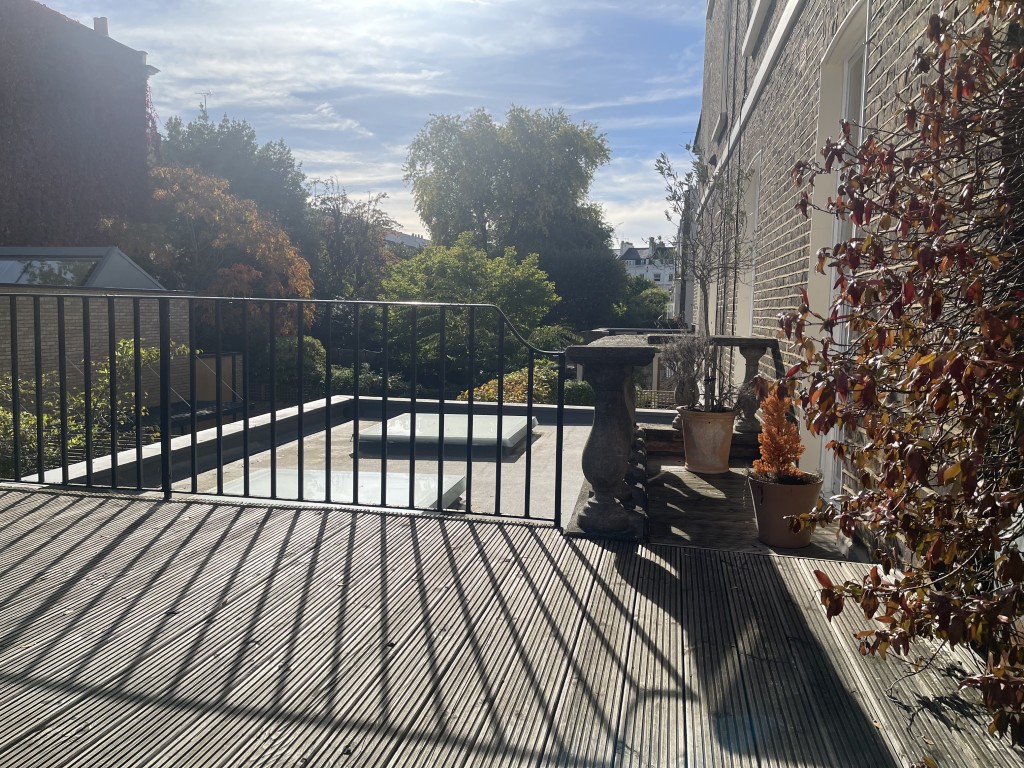
You can buy property in the UK no matter where you live. The process is open to foreigners, but it comes with extra paperwork, possible tax differences, and a few financing hurdles.
Is buying property in the UK a good investment?
Buying property in the UK can be a solid investment if you focus on stable markets like London, Manchester, or Birmingham. These cities often show steady rental demand and long-term value growth.
If you plan to rent a property out, then look at areas with strong job markets and good transport links. Property management fees, maintenance costs, and exchange rate changes can all impact profits.
Keep in mind that property ownership doesn’t automatically grant residency or citizenship.
How long does it take to buy property in the UK?
Most property purchases in the UK take 8 to 12 weeks from offer to completion. The timeline depends on how fast your solicitor, bank, and the seller’s team work.
If you’re buying with a mortgage, expect extra time for lender checks and property valuations. Foreign buyers often need to provide more documentation, such as proof of income, identity, and address.
Cash buyers usually move faster because they skip the mortgage approval process. Still, delays can happen if property searches uncover issues or if the seller is part of a long property chain.
You should also factor in time for transferring funds internationally and dealing with currency conversion.
What challenges should foreign buyers anticipate when buying property in the UK?
You’ll likely face stricter identity and financial checks under UK anti–money laundering rules. These checks can slow the process but are standard for all foreign buyers.
Getting a mortgage may be harder if you don’t have a UK credit history. Some banks require larger deposits - often 25% or more - for non-residents.
Legal fees, taxes, and exchange rate fluctuations can also raise costs. You’ll need to work with a UK solicitor to handle contracts and title searches.
Can you rent out property as a foreign landlord in the UK?
Yes, you can rent out your UK property as a foreign landlord. The UK allows non-residents to own and lease property without restrictions.
You must, however, register with the Non-Resident Landlord Scheme (NRLS) if you live abroad for more than six months a year. The scheme ensures that tax is collected on your rental income.
Many landlords hire local agents to manage tenants, collect rent, and handle maintenance. This can make things easier if you live overseas.
Rental income is taxable in the UK, even if you pay taxes in your home country.
Ready to Buy Property in the UK?
Buying property in the UK is pretty straightforward, even if you’re not a citizen. There are no legal restrictions on foreigners purchasing real estate, so you can buy a home or investment property regardless of nationality.
You’ll still need to handle taxes and fees. For example, you must pay Stamp Duty Land Tax (SDLT) on properties above certain price thresholds. Non-residents usually pay a 2% surcharge on top of standard rates.
If you plan to get a mortgage, UK banks may ask for larger deposits or proof of overseas income. It helps to work with lenders familiar with international buyers.
Take time to understand the legal process, compare mortgage options, and plan for ongoing costs like maintenance and property taxes. It’ll make your buying experience smoother and less stressful.







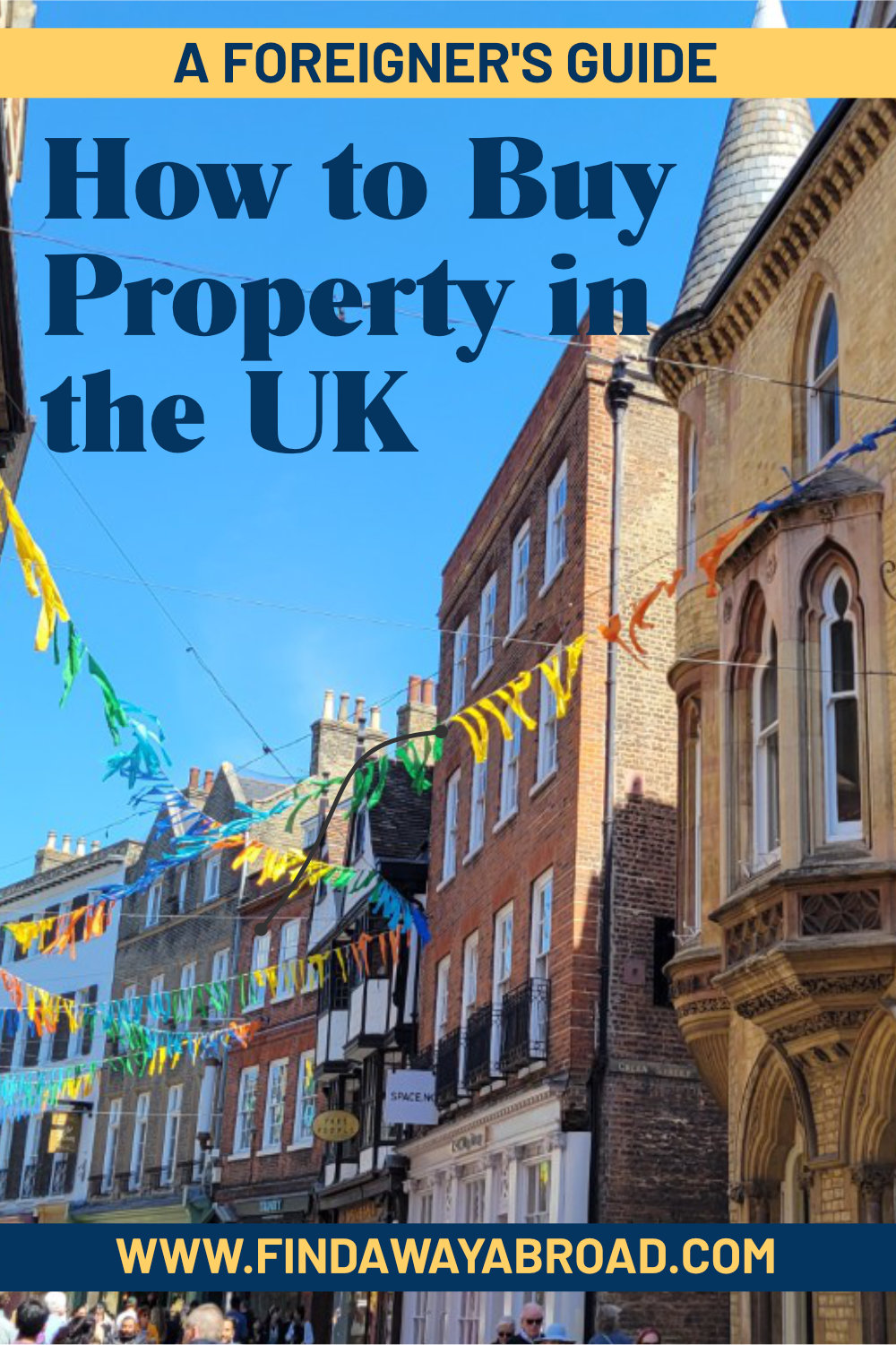

.png)
.png)